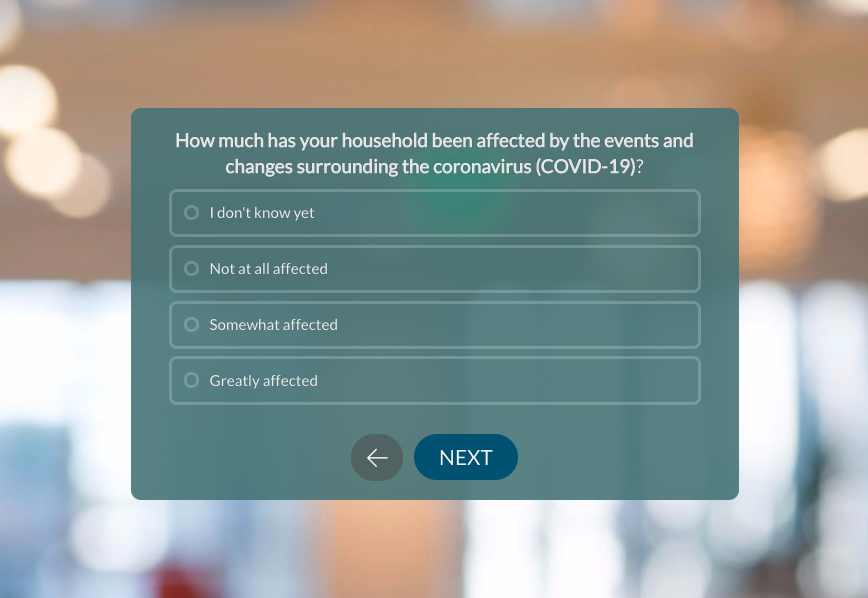Meaningful questions are a consultant’s best friend.
With the right questions, you can turn an entire sales conversation in your favor.
You go from being just another run-of-the-mill consultant to the one they HAVE to hire.
Anybody can ask questions, but what sets a good consultant apart is knowing how to ask questions that show expertise, uncover their client’s true needs, and demonstrate the value they’ll bring from the first interaction.
Creating a needs assessment will solve and streamline this challenge. It will help you accurately understand your client’s needs faster and more efficiently, effectively helping you scale your sales pipeline.
We’ll explain how in a second, but first let’s look into what a needs assessment exactly is.
What is a needs assessment?
No barber will cut your hair without asking how you’d like it cut.
The same applies to consultants.
Before you can help someone, you’ll have to figure out what kind of help they need. That’s where a needs assessment can help.
A needs assessment provides a snapshot of your potential client’s business and helps them understand how they perform compared to a benchmark. It will also reveal issues or problems.
Solving them is often a case of making changes in order to make improvements. That’s where you, the consultant, come in.
Why are needs assessments important?
If you want to scale your business, you’ll need to scale your sales pipeline first.
But delivering that same powerful personalized approach when working with an ever-increasing number of leads, can be a challenge.
This is where a needs assessment can bring some relief.
Running a needs assessment has quite a few benefits:
- Sending the needs assessment to your lead and asking them to complete it prior to the appointment, will allow you to customize your sales pitch. Take this opportunity to specifically address their challenges.
- Needs assessments can be performed remotely, giving leads a chance to take their time and think through their answers.
- It helps you better understand their most pressing challenges, while at the same time positioning you as someone who can provide the solutions they’re looking for.
- With the right assessment tool, consultants can receive easy-to-read results, compile them into an actionable report, and better target each individual.
The shift towards digital needs assessments over in-person ones isn’t a surprising one. Around 70 percent of companies have a digital transformation plan in place to help them shift their operations to the web. Consultants, either working independently or through companies, can better engage with both B2B companies and individuals through the use of technology such as digital assessments.
Sample questions for needs assessments
A needs assessment is only as effective as the questions you put in it.
Choosing questions to not only engage clients but also equip a company with the information needed to better craft an approach to landing sales takes care.
The aim should be to choose questions that are easy to answer if a client is pressed for time, yet thought-evoking enough to encourage them to leave a thorough answer.
Specific questions used in a needs assessment will vary depending on the goals of the assessment. But the information you want to collect is the same:
- What is your/your company’s mission?
- What specific challenges are you facing?
- What have you tried to help overcome those challenges?
- What would success look like as a result of this solution?
Just as the answers participants will give vary from one individual to the next, the right questions for a needs assessment depend on a company, its audience, and the services being offered.
Open-ended or multiple-answer questions can be used to gather more specific, targeted information about a client.
Alternatively, you can re-phrase these questions into scale statements. Where you ask your leads to rate themselves on a scale of 1 to 10 or 5-point Likert scales ranging from “strongly disagree” to “strongly agree”.
Examples of an effective needs assessment at work
Another feature of needs assessments is the ability to adjust an approach to shifts in the market or worldwide events affecting clients.
ResultsLab is a company aimed at helping non-profits more effectively use their data to drive social change. They shifted to offering a needs assessment their clients can use to survey their own audience about the impact of COVID-19 on their families, their employment, and what needs they may now have as a result.
This approach allows non-profits to quickly gather data on immediate needs in order to quickly meet them. In the same way, consultants can adjust their needs assessment to gather relevant and timely information from clients to help them overcome any immediate hurdles they may face.

Using a needs assessment to scale a sales pipeline
Digital needs assessments are great tools consultants and coaches in a variety of fields can use to bolster their sales pipeline and increase conversions. However, one drawback of utilizing a digital assessment is encouraging participation and thorough responses from prospective clients.
Pointerpro can help.
With bells and whistles other digital survey creators don’t have, Pointerpro can help to quickly and easily create captivating surveys encouraging client engagement. When they’re finished, you’ll have a variety of options for viewing and analyzing data to get the most value out of client responses.
To learn more about how Pointerpro can help to create engaging needs assessments to start scaling your sales funnel, click here to discover our digital surveys. Meanwhile, don’t hesitate to check out our sales expert Andres’ tips on using a needs analysis assessment to generate leads.



